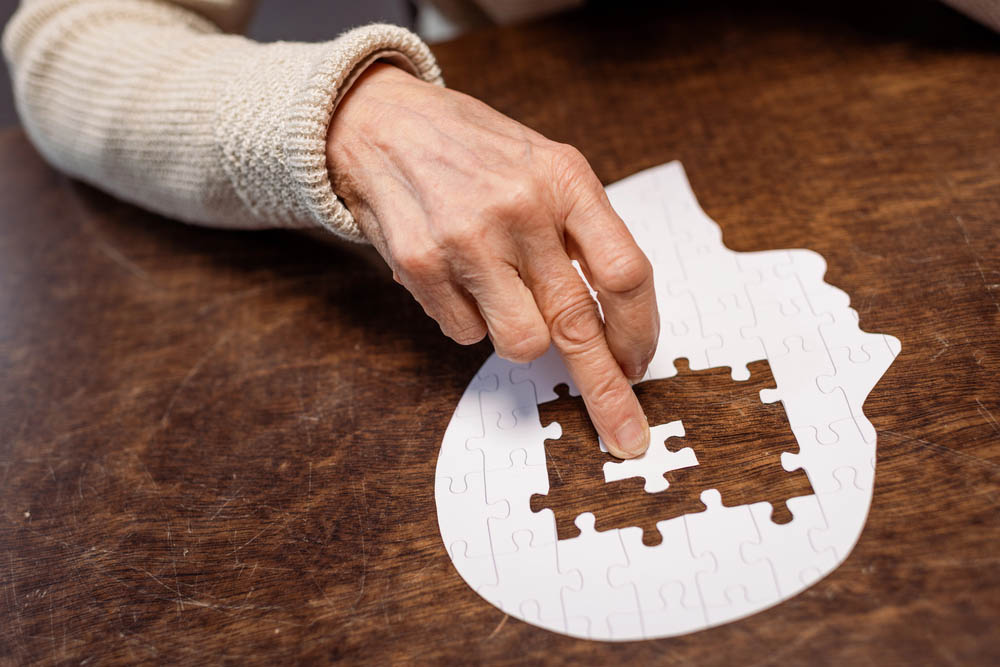What are we without our memories? Or the ability to make new memories?
A new paper just published, from the largest ever international survey of people who had electroconvulsive therapy (ECT) and their families, reports on their memory damage in their own words. (Because these are direct quotes written by the participants, they may contain typos which have not been corrected.)
“I can’t remember any family trips, sometimes not even with photos.”
“I couldn’t perform at my administrative job anymore because of the memory issues.”
“I see photographs and don’t know where/when/what the social occasion was.”
“Every part of my son’s first few years – milestones, likes and dislikes, first steps, words, foods, toys, books…family trips, personal accomplishments, holidays, birthdays, and so on.”
“He didn’t remember his professional education and training well enough to remain employed in his field.”
“A decade of my life between 25 and 40 I don’t remember at all pretty much.”

These are terrible, catastrophic injuries. There are a lot of very moving accounts, and I could fill this page, but you might struggle to take in the pain of larger numbers. One person is a tragedy; one hundred is a statistic. One hundred and fourteen people told us they had lost memories of personal events from before ECT, like getting married, birthdays, family events. It’s hard to hold in mind how many people that is—maybe four average-sized school classes.
Twenty-six people wrote about needing to write everything down: “I often feel that memories are slipping threw my fingers soon after they occur”, “Memories do not ‘record’ anymore. Or if they do, they have nowhere yet to be ‘saved’”.
Can you imagine what that does to your life, or your sense of who you are? Forty-four people gave details of how the ECT they received had damaged their ability to make new memories so badly they struggled to work at all. Forty-one people told us they had no memory of over a year of their children’s lives.
Maybe you think this isn’t relevant to you? Yet it could be you one day—the treatment that did all this damage can be legally given even if you don’t or can’t consent to it. Even if your family doesn’t consent to it, they can be overruled or ignored. Around a million people a year worldwide get ECT, and about a third of these are non-consenting (based on UK data). Beware—if you fall on hard times, maybe if a few too many life events happen at once, this could happen to you or someone you love.
If you were surprised to hear how widely ECT is still used, you would be even more surprised to hear that people generally haven’t been followed up on in particularly large numbers, or in much detail, or in the longer-term. And that relatives and friends have nearly never been asked (before now, there was just one study of 27 people). Which brings us to our survey, the largest ever by far, with 1,144 people from 44 countries, including 286 relatives and friends, which I wrote about recently on this blog. That previous blogpost is about whether ECT actually works (our survey found 20-30% felt it helped, although only 6-9% felt help lasted longer than a month or two, whereas 60% said it had made their lives “worse”, and 30% “much worse”). The latest paper from the survey addresses whether ECT damages memory—both the ability to remember new things, and to remember old.
You probably need to know that the official information given to people or families thinking about having ECT (from the body responsible for ECT in the UK, the Royal College of Psychiatrists [RCP]) states that “in most people, memory difficulties clear within two months of the last treatment and it does not cause problems or distress. Nevertheless, about 2% of people complain of severe memory problems directly after ECT”.
In our study, 54% had said their old memories (retrograde) had severely deteriorated, and most of them felt this loss of memory had lasted more than three years. Similarly (42%) said their ability to retain new information had severely deteriorated, and again, two-thirds of them felt it was for more than three years. Family and friends largely agreed, suggesting this wasn’t the recipient’s “depression speaking” as often claimed by ECT proponents.
You may or may not be surprised to hear that, perhaps because they don’t think it is a problem, people giving ECT mostly don’t test people’s memories during or after ECT, even though there have been plenty of smaller-scale accounts from recipients talking about serious memory problems. We surveyed all ECT providers in the UK recently, and only a third could even name a vaguely suitable test for memory loss. Only 4 out of around 50 Trusts asked could provide even a little bit of actual data about adverse effects, and none did any tests beyond the final session of ECT. Most of the tests they named would not have picked up the sort of memory problems usually reported.
The RCP do say memory problems should be tested for, but do not suggest any particular tests. In their own study a few years after our audit, only around half of all the people who actually had ECT that year had any sort of memory test. Of those that did, the test predominantly given (The “Mini-Mental State Examination” or “MMSE”) is grossly inadequate to detect the sort of deficits mentioned at the start. Have a look at the MMSE and see if you can spot the memory test? Being able to repeat a list of three objects back a minute later is seen as proof that there is no memory damage!
“I can’t remember my brothers funeral three years before ect, even my own 15 minute long speech, even after seeing it on video twice I cant recall it, still 11 years after” said one respondent. “My daughter asks about events in her childhood, and I have no memory of it”, said another.
And we found no evidence, in our audit, that people who provide ECT, or the teams they hand patients back to, ever check anyone’s memory beyond the date of the last ECT session.
You might think this is clinical negligence.
You would also be surprised to hear the RCP and other ECT proponents have typically responded in the past to ECT recipients’ heartfelt distress about their ECT-caused problems with a form of psychiatric gaslighting. I’m going to list six classic gaslighting styles which I think best describe common responses, characterised below by quotes in italics. These six gaslighting quotes were made up by me to illustrate a theme, but a number of ECT recipients have confirmed these are exactly the sort of things psychiatrists have told them. (It is important to stress that besides these six examples, all other quotes in this piece are ECT recipients’ exact words.)
Gaslighting response number 1: Denial: “It didn’t happen”. They tend to repeat, without proper evidence, that most people benefit and only a very small minority are damaged. They might argue that we just happen to have surveyed only the 2% who get damaged.
We would point out our results about memory corroborate all the previous independent research. Also, we should note all the steps we made to recruit from people who benefited from ECT as well, to design the survey so that results were genuine and the questions were not leading, such as asking about positive effects first. We went through the usual scrutiny from ethics committees and internal reviews of charities, who would judge it unethical to conduct “propaganda research”. We wouldn’t have wasted so much of our time on a survey that seemed biased to an impartial reader.
Most of the recruitment was from impartial mental health charities, such as MIND in the UK, but it was also posted on the social media accounts of our team, and this could be criticised as a source of bias. There is a smidgeon of validity to this criticism. Our team has a pretty limited social media presence: in total it has around 20,000 followers on Twitter (X); this the extent of our social media reach. A post on ECT usually gets around 200-1,000 views, but let’s assume that 5,000 people saw the survey advert. It would still need a click-through rate of 20% for the majority of respondents to have come through Twitter (X). In online circles, a click-through rate of 1-2% is considered sensational, and this is click-through, not actual completion of a long survey, and for non-depressed and non-cognitively-impaired populations. I just don’t think it is credible to dismiss our survey as entirely biased, much as some people might like to.
Gaslighting response number 2: “It doesn’t matter”. I predict that many ECT proponents will argue that even if memory loss is real, it might be a good thing, because now people can’t remember the traumatic events they have been through. I don’t think I need to find a counter-argument to such glib nonsense. It really does matter to the people who had ECT and their families. Consider the respondents to our survey who wrote “I can’t remember getting married” or “I can’t remember a single teacher from high school or a single kid in my class. Everything is gone”.
Gaslighting response number 3: “It will be better from now on. We do ECT differently now”. ECT supporters like to claim that memory problems were associated with an old-fashioned style of delivering ECT, ‘bilateral’ electrodes (meaning electrodes on both sides of the head, rather than two electrodes on one side, or ‘unilateral’). But most of our survey respondents received ECT between 2010 and 2025, and most got it bilaterally (78%). Psychiatrists generally still give bilateral ECT. We also found no correlation between recency of ECT and extent of memory loss. The distress caused is from modern ECT and there is no reason to think delivery style will change.
Gaslighting response number 4: “It’s your own fault. It just reflects how bad your depression was before ECT. It has nothing to do with ECT.” Our survey showed there was a dose response—the higher the dose of ECT (more times ECT received), the higher the level of memory problems (statistically significant for both new and old memories). A dose response is a key indicator of causality, according to the widely-used Bradford Hill Criteria for establishing causal relationships.
ECT proponents like to argue that depression alters memory anyway. But crucially, depression does not cause the sort of memory problems brought up by our survey respondents. “I couldn’t remember lifelong friends”, “I couldn’t remember how to do math (I was an accountant)”. It is also worth noting that respondents were asked specifically about deterioration in memory after ECT, not just whether their memories were bad, so it can’t be any pre-existing depression causing the memory problems. (Also, if ECT improved depression, why would their memory be worse after ECT?)
Gaslighting response number 5: “You agreed to this. You were told about the risks”. Only 17% of people responding to our survey remembered being told ECT can cause long-term or permanent memory damage. Most people remembered being told “ECT is the most effective treatment for severe depression”, and “life-saving”.
Gaslighting response number 6: Threats: “Shut up or you will put others off from having a life-saving treatment.” People who think ECT helps have argued that questioning a treatment is dangerous, because it may risk people not wanting the treatment, and that would endanger lives through suicide and self-neglect. We would argue that the risk of suicide and long-term impairment is clearly higher with the treatment, when 60% of people have subsequently been given serious memory problems: “I can’t remember a single day I’ve spent with my boyfriend of 6 years unless it happened a couple of days ago”.
Indeed, the current RCP information sheet is somewhat threatening: “Not having ECT may mean that you are more likely to have: prolonged and disabling mental illness, serious physical illness (and possibly death) from not eating or drinking, and an increased risk of death from suicide.” All of this is highly contentious—for example, most people are given ECT for mild to moderate depression in our survey, so not eating or drinking is pretty unlikely—so why the threats? Similarly, it has been argued that publicising evidence questioning ECT’s safety and efficacy is “stigmatising” people who felt they benefited from the treatment. How so?
It seems almost a given that most psychiatrists who give ECT will discount the survey and the voices of so many people damaged by ECT; they will shrug and carry on.
What would we like to happen? People considering ECT should be given accurate and balanced information on which to base their decisions, rather than the “ECT is safe and effective” mantra currently given. Proper rigorous research is needed as a minimum, including randomised control trials involving placebo (sham ECT) to establish if ECT works, and for whom, and if it is safe. Currently there is nothing, as I wrote about previously.
If ECT continues, it can only do so with widespread use of proper memory checks using tests that might actually detect the sort of impairments that hundreds of people in our survey reported. There also has to be proper assessment at follow-up well beyond leaving the clinic. Where memory or other impairments are found, rehabilitation should be provided as standard. And the denial and gaslighting has to stop.















I agree, the psychological and psychiatric gaslighting and ECT needs to stop. As one who kept copious notes, when I was dealing with the systemic psychiatric neurotoxic poisoning of me and the American public.
Since as a person, who did my homework, and found the medical evidence of the iatrogenic etiology of “the sacred symbol of psychiatry,” via anticholinergic toxidrome and neuroleptic induced toxidrome.
I now seemingly have google hacking into my computer, and censoring me. If that’s not true, can anyone explain to me why I supposedly have 257 subscribers, none of whom are public?
https://myaccount.google.com/u/0/yourdata/youtube?hl=en
And as one who agrees with the censored truth tellers, who seemingly have just been welcomed back on the internet, I do hope America can save itself with the truth, and help to save the world.
https://www.youtube.com/watch?v=4ckeQglMnmc
The truth will set us free.
Report comment
Dear Dr. Harrop, I participated in your study. I received between 20-30 bilateral electroshock treatments when I was 16 at a state hospital in Michigan. I had been one of the best students at my high school beforehand. After shock treatment, however, I had difficulties finding simple words and made many paraphasic errors in talking (i.e., substituting words had rhyme with the intended word), and lost many of my academic skills. My difficulties with speech continued for many years, while my academic problems eased through strenuous efforts of my part. I detailed my electroshock experiences for Mad in America previous (“Committed at 16: Memories of a Mental Hospital,” “State Hospital Memories: More of My Story.” I also reviewed the history of the failure to provide evidence for the safety and efficacy of electroshock (“The Shady World of Shock Treatment.”)
One source which I would have liked to have included in my review of electroshock was the report of the Advisory Committee on Neurological Devices Committee to discuss the reclassification of electroshock devices of the US Food and Drug Administration in 2011. I had downloaded it sometime before I wrote my review, but when I went to it, I could not find it again on the internet. It is now available again for those who are interested: https://psychrights.org/research/digest/Electroshock/FinalECT515iFDAReport.pdf.
The question before the FDA Advisory Committee was whether electroshock devices could be reclassified from Class 3 (high risk), requiring manufacturers to provide information to the FDA on the safety and effectiveness of the device before it could be used, to the lower risk Class 2 which left its safety and effectiveness is left to the manufacture. Part of the Committee’s procedure was a public docket where members of the public and various groups could send in their opinion to aid the committee in making its decision. A total of 3,045 responses were received. Of these 79% did not support reclassification, while 14% did. A majority identified an adverse event association with ECT. The most frequent memory loss, cognitive complaints, brain damage, and death.
While the Advisory Committee public docket responses and your study are large enough to raise significant concern about ECT’s safety, they cannot be regarded as definitive. That would require a larger randomized study. However, they put the word out. The FDA itself warns that: “…the long term safety and effectiveness of ECT treatment has not been demonstrated.” (https://www.ecfr.gov/current/title-21/chapter-I/subchapter-H/part-882/subpart-F/section-882.5940).
ECT has now been in use for over 80 years without its safety and effectiveness established to meet scientific standards. An untold number of patients have been harmed, and an untold number of practitioners unjustly enriched. I agree with Dr. Read’s recommendation that all ECT treatments be suspended until a definitive answer on its safety and effectiveness is available.
Report comment
During my decades of counseling psychology practice, I always advised my clients against this barbaric treatment, because I saw its effects on a person I liked and respected as a student.
Thank you for your work. More power to your team!
Report comment
I’m over 25 years past my last ECT treatment. I still have permanent memory loss that I can’t tell you where it starts and where it ends. My husband and I used to fight about things I’d done and didn’t remember doing. Now we know it’s the ECT. I had to learn where everything was in the city I live in again – my ability to navigate was gone. On top of that, it never helped the depression it was supposed to help.
Report comment
“It seems almost a given that most psychiatrists who give ECT will discount the survey and the voices of so many people damaged by ECT; they will shrug and carry on.”
As you would expect from people engaged in experimentation and who are likely violating the Nuremberg Code. Forget the science, look at the politics if you want to understand why this barbarism is being enabled by States. The same was done with various other unethical and barbaric experiments post WW2. The lies that were told to people who participated in other forms of experimentation? Starting with the assumption that this is even ‘medical’ in nature seems to flaw your study. oh, and let me tell you it’s a great means of emptying peoples bank accounts once they have been enslaved using the Mental Health Act.
Report comment
And how many millions more dollars spent to “research” this, and how many more papers published saying the same thing, before ECT stops being used, I wonder. (I don’t really wonder. Obviously ECT is easy and lucrative and will never stop being inflicted on “the mentally ill.”)
Report comment